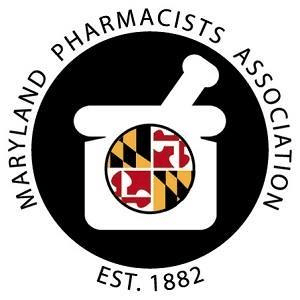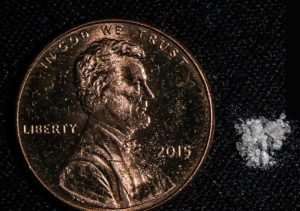Drug Importation in Connecticut: An Overview

Synopsis:
The Connecticut legislature has not yet advanced bills that have been introduced to legalized importation of drugs from Canada. However, in 2019 the state budgeted funds for the Department of Consumer Protection to hire a project manager to submit a request for approval for a Canadian Prescription Drug Importation Program to the federal Secretary of Health and Human Services.
Current status:
Budget documents indicate that Connecticut will be submitting an importation plan to the Department of Health and Human Services in 2020 or 2021.
How should we evaluate this program?
The program hasn't started yet, or even been designed, so there's no way to measure whether it saved money or kept patients safe, both promises made at the time of passage. However, the 2003 Medicare Modernization Act contains requirements for safety requirements built into any such program.
Official actions and statements
Connecticut has made no official statements regarding importation.
Background / resources
Learn more about
- The Drug Importation Debate
- Fake Medicine in Connecticut
- The Importance of U.S. Closed Drug Supply Chain
Testimony Opposing Importation
- Testimony of Shabbir Imber Safdar, PSM Executive Director at Connecticut's Health Care Affordability Informational Forum, November 14, 2019
Op-eds from the Experts
More than 60,000 Americans died from drug overdoses last year. Fentanyl, a synthetic opioid 100 times more powerful than morphine, caused one-fifth of those fatalities. Local law enforcement and health professionals are working at a feverish pace to prevent fatal overdoses, yet at the same time, some federal lawmakers have proposed legislation that would make it legal to import drugs that are not approved by the Food and Drug Administration into the United States from questionable sources. Such legislation would provide a gateway for international criminal organizations to import counterfeit prescription drugs and deadly illegal opioids, including fentanyl…
Bill McCollum, former attorney general of Florida and member of Congress, wrote about the dangers of drug importation on August 8, 2017:
“Opening the door to increased prescription drug importation will just make it easier for smugglers to ship this dangerous opioid into the United States. For years, we have asked police officers and prosecutors to do more with less. There are few signs that austerity will end. Changing laws to encourage importation of drugs would only add to that burden.”
Terry W. Deese, Peach County, Georgia Sheriff and president of the Georgia Sheriffs’ Association, wrote this editorial for the Macon Telegraph. It was published on July 27, 2017.
“Georgia’s law-enforcement professionals and health officials are scurrying to stop the spread of these harmful pills. But in Washington, Congress may soon make it easier for counterfeit drugs like these — along with illicit prescription medicines — to enter the United States.
This effort doesn’t make any sense. Loosening restrictions on drug importation will worsen the opioid crisis.”
Brandon Macsata, the CEO of the AIDS Drug Assistance Program Advocacy Association, writes about the dangerous unreliability of imported medicines. (Originally published in the The Washington Blade and the ADAP blog.)
The bills before Congress would remove many of the license and oversight requirements on the drugs imported into the United States by lifting those barriers, inviting an influx of bogus pharmaceutical products from the same crime rings that are selling these drugs in other countries around the world that would love better access to the U.S. market.
Law enforcement would inevitably be tasked with policing the problem, at a time when most prosecutors and law enforcement officials have their hands full with the growing opioid crisis. One of the biggest killers is fentanyl, a potent, synthetic opioid pain medication that is being laced into counterfeit pills.
This editorial by Aliyah N. Horton, the executive director of the Maryland Pharmacists Association, was published in the Baltimore Sun on July 19, 2017.
In it, Horton points out the “huge public health risk” posed by buying imported drugs, and urges legislators to vote against unsafe drug importation, and to “seek other avenues to improve patient access, safety and drug affordability.”
In a July 14, 2017 editorial for STAT, Jim Greenwood, the president and CEO of the Biotechnology Innovation Organization (BIO), reminds us that the safety risks of buying prescription medicines from other countries are real:
“The debate about drug importation has been underway for decades. Those who support it have never advanced a responsible plan that would provide the same level of health and safety protections that the FDA has delivered for decades. Its rigorous system of rules and protocols ensure that prescription drugs in this country are safe and effective. It protects those high standards by preventing the sale of imported prescription drugs that are not approved for use in the U.S.”
A few years ago, Maine introduced similar legislation that allowed patients to buy drugs from foreign pharmacies. We, too, wanted to provide patients with lower-cost medicines.
It proved to be a big mistake. Instead of getting drugs from Canada, we got dangerous and ineffective counterfeit pills from other countries. Maine’s disastrous experience with counterfeit Canadian drug imports should serve as a lesson to our lawmakers to say no to drug importation legislation.
The Philadelphia Inquirer published this editorial by George M. Karavetsos, a partner with the global law form DLA Piper, and former director of the U.S. Food and Drug Administration Office of Criminal Investigations.
Proposed Drug Importation Law Will Worsen U.S. Opioid Epidemic
More than 60,000 Americans died from drug overdoses last year. Fentanyl, a synthetic opioid 100 times more powerful than morphine, caused one-fifth of those fatalities. Local law enforcement and health professionals are working at a feverish pace to prevent fatal overdoses. Even librarians in drug-plagued neighborhoods . . .
Investor’s Business Daily published this editorial by D. Wayne Taylor, Executive Director of the Cameron Institute, a not-for-profit, public policy think tank specializing in the independent study of health, social and economic issues both in Canada and around the world.








